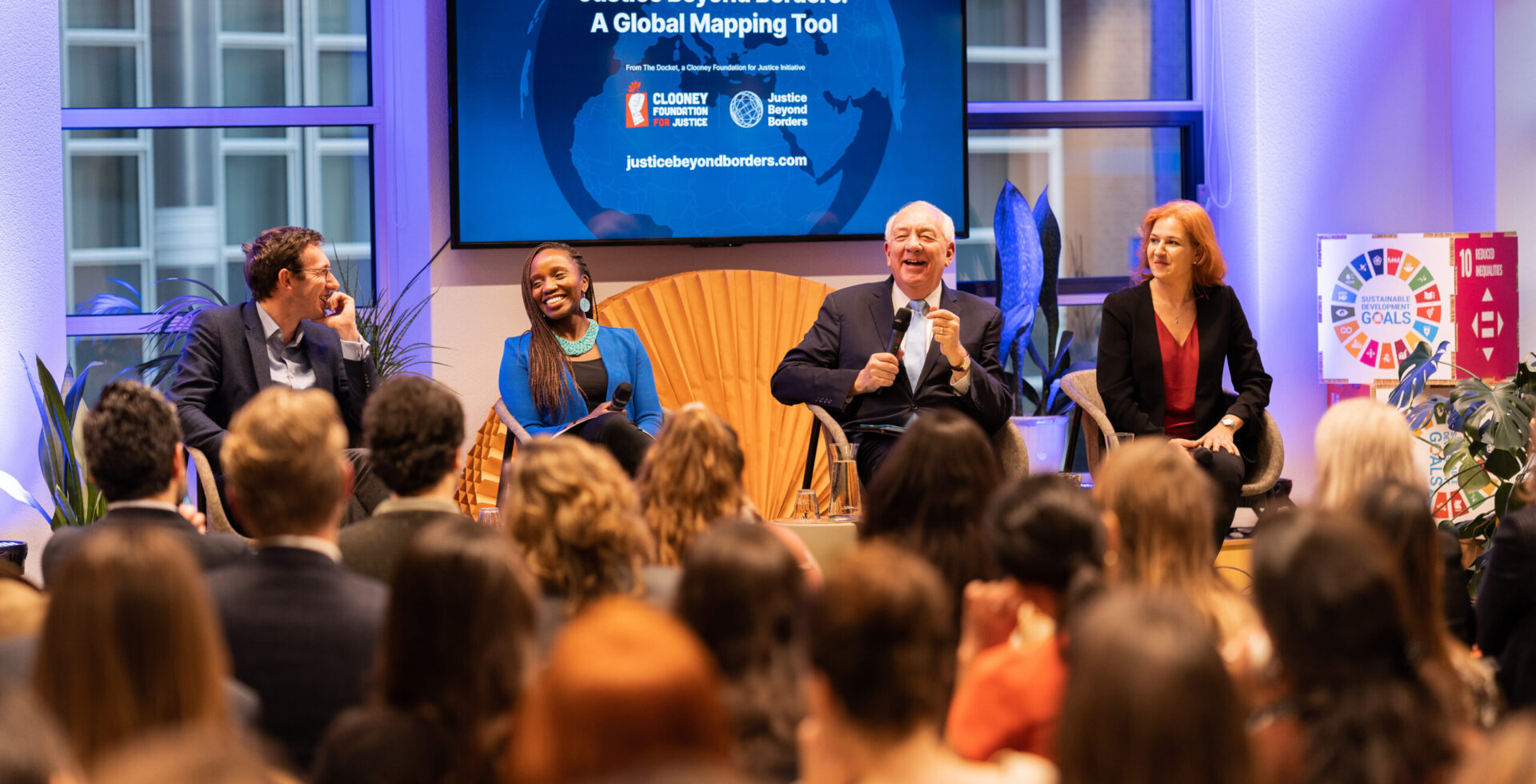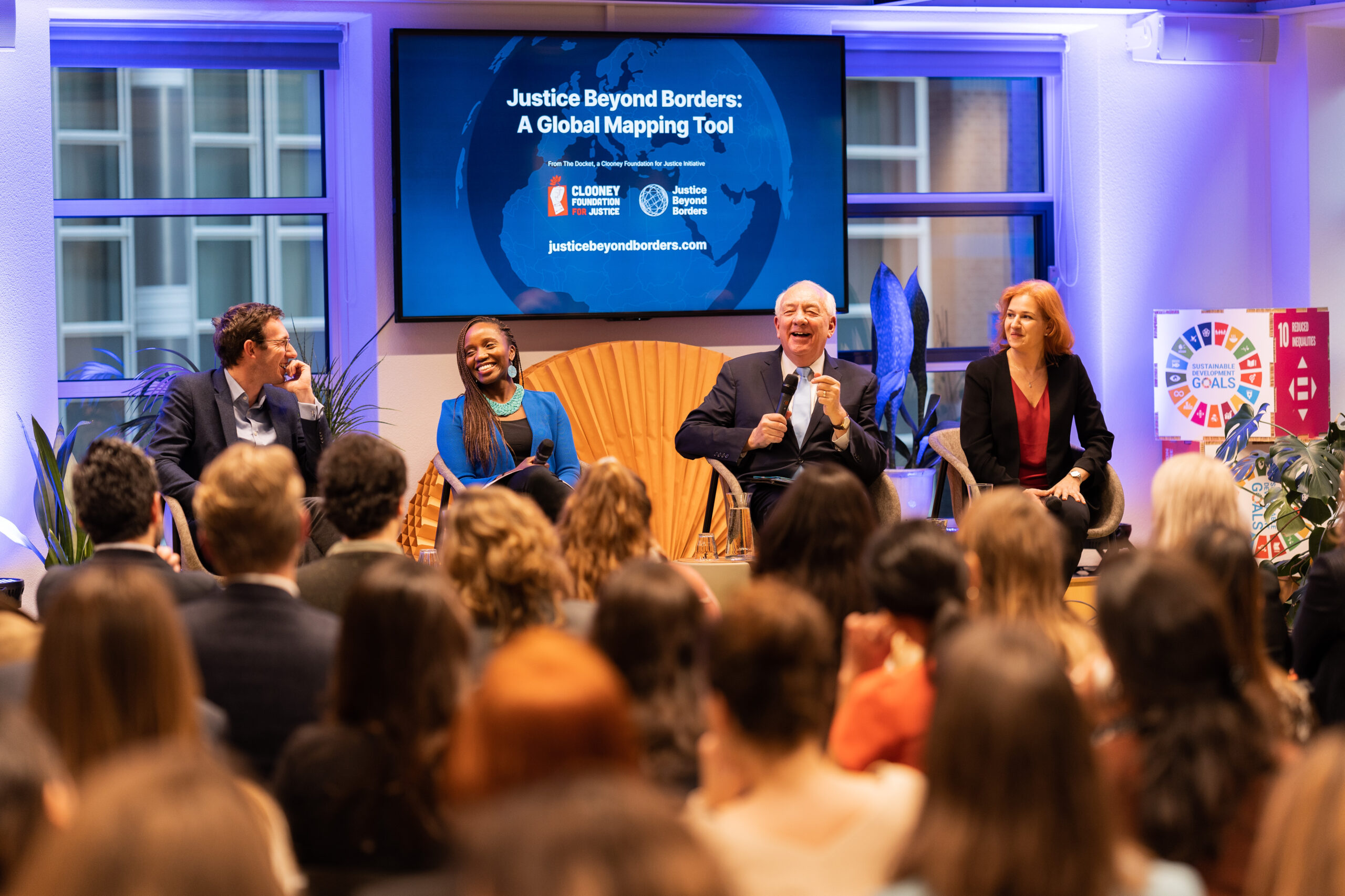How can the world wage justice for atrocity crimes when perpetrators seem so hard to reach?
To provide an answer to this question, as well as a clear path forward, the Clooney Foundation for Justice launched the Justice Beyond Borders (JBB) Project – an online mapping tool that shows how existing laws around the world can be used to obtain justice for the most serious international crimes.
The JBB Project is a searchable online database that tracks criminalisation of the most serious international crimes – war crimes, crimes against humanity, genocide, and aggression across all 193 UN Member states. For each jurisdiction documented, the JBB Project also details what is required to trigger successful cases. Its purpose is to help survivors seek justice by providing this information in a comprehensive and accessible form, helping them to trigger and participate in cases.
CFJ’s analysis shows that a staggering 148 out of 193 UN member states have laws which allow them to investigate crimes committed beyond their own borders. However, in reality a very small number of countries have used these laws. Over the past three decades only 20 countries opened cases into the most serious international crimes and less than half of these cases resulted in a conviction.
“There is a real opportunity for justice through the principle of ‘universal jurisdiction’ – the idea that some crimes are so egregious that any country’s courts can put people on trial for them, no matter where they are committed”, said CFJ Co-Founder Amal Clooney at the start of the launch event in the Hague’s Humanity Hub.
“Every country can decide not to be a safe haven and instead to be a hostile environment for war criminals by adopting laws that allow such criminals to be arrested when they turn up at the border.”
Recently, application of this principle of universal jurisdiction has been gaining momentum. UJ allows countries to prosecute the most serious crimes regardless of where they have been committed and regardless of the perpetrator’s nationality. The uptick in cases has also been driven by the creation of specialized police units, greater involvement of civil society, and international cooperation.
“I don’t think investigations can progress as quickly as we want them to without the participation of civil society groups because they’re the people who have access to victims and who represent survivor communities themselves. Very often they fill the main gap,” said Anya Neistat, Legal Director of The Docket initiative at the Clooney Foundation for Justice, speaking on the JBB project panel today.
“Filling this vacuum that currently exists is absolutely crucial and I think this (JBB project) tool is a wonderful way to keep the momentum going,” said Angela Mudukuti, Senior Legal Adviser, Global Justice Center, a panellist at the launch. “It’s very important to have victim led or survivor led initiatives,” she went on to say.
Yet, there are countries that still haven’t criminalized war crimes, crimes against humanity, genocide, and the crimes of aggression, or recognized any form of jurisdiction over such crimes committed abroad. Other countries have significant legal restrictions, effectively blocking meaningful avenues to justice.
“I think we need to sharpen the tools and broaden their use, there’s no question about that –when only 28 countries have pure universal jurisdiction over the essential crimes,” said panellist Stephen Rapp, former US Ambassador-at-Large for War Crimes Issues in the Office of Global Criminal Justice.
The Justice Beyond Borders project supports the mission of The Docket, one of CFJ’s initiatives, to provide access to justice for people who are too often denied it and ensure that perpetrators have nowhere to hide. In Ukraine, Venezuela, the DRC, and elsewhere, The Docket is working with survivors of atrocities to trigger trials and provide free legal representation for survivors in court.
To learn more and to use our Justice Beyond Borders tool, click here. To watch a recording of the event, visit our YouTube channel.
For more about The Docket, visit: https://cfj.org/project/the-docket/
For more about CFJ, visit: https://cfj.org/
For media requests email: [email protected]

